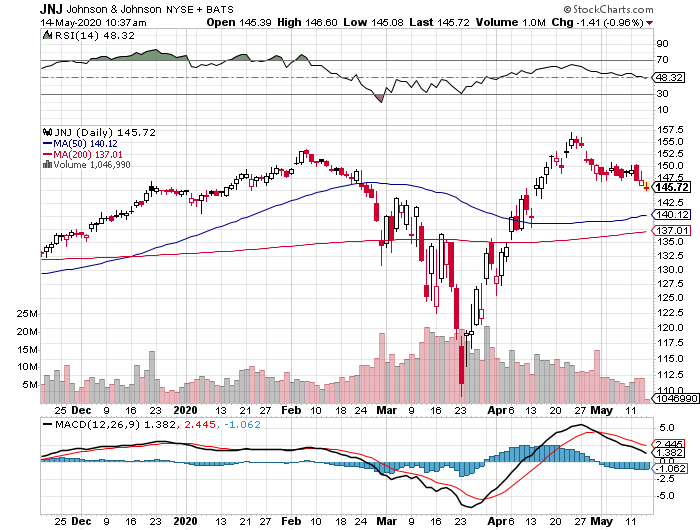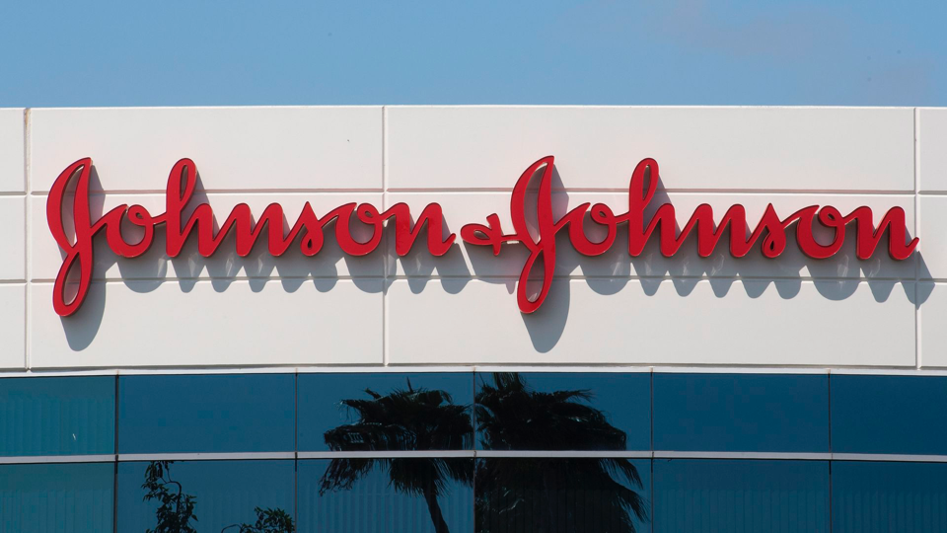Johnson & Johnson’s Big Corona Play
One of the world’s biggest biotechnology and healthcare companies did not reach this status by betting on unproven strategies, but Johnson & Johnson (JNJ) recently made a huge gamble on an experimental vaccine for the deadly coronavirus disease (COVID-19).
Going all-in on this bet, JNJ committed to co-fund with Biomedical Advanced Research and Development Authority (BARDA) the development of a coronavirus vaccine. The two companies pledged over $1 billion for the manufacture of this experimental treatment.
Why is this a big deal?
Drugmakers typically wait to receive positive results before they even consider breaking ground on facilities designed to mass-produce any potential drug.
JNJ and BARDA’s move means there will be warehouses full of this coronavirus vaccine candidate even before we find out whether or not it can successfully prevent COVID-19.
Simply put, Johnson & Johnson decided to mass-produce a vaccine without any proof that it could even be effective.
The company is so confident about this that it believes it could hit the market by 2021 -- a stunning claim considering that it generally takes three to seven years, and at times even longer, to push a vaccine from the initial stage to market launch.
Although claiming such an incredibly short timeline is generally laughable, the FDA has been quite flexible when it comes to efforts to fight the pandemic.
Realistically speaking though, JNJ is unlikely to win this race.
While the giant drugmaker is obviously one of the most promising companies to join this fight, several companies are already further along in their efforts to find a COVID-19 vaccine.
A good example is Moderna (MRNA), which recently started Phase 1 of its clinical trials for a potential COVID-19 vaccine.
The company, which is working with the National Institutes of Health, will determine the safety and ability of its vaccine to trigger an immune response in the patient’s body. To date, there are 45 volunteers involved in this trial. Each of them will receive two doses of Moderna’s experimental vaccine.
Even if JNJ fails to make a fortune from its COVID-19 vaccine candidate, the company still has what it takes to ride out the pandemic and subsequent economic crisis. Actually, it has the ability to come out practically unscathed.
Throughout its 133-year history, (JNJ) has been a steady company that managed to survive six significant recessions so far.
A good example of its resilience was demonstrated during the Great Recession in 2008 up to 2009.
While the S&P 500 Index dropped by as much as 57%, (JNJ)’s shares fell by a maximum of 35%. With firm leaders and adjusted operational earnings growth, the company actually recorded an average earning-per-share growth of 7% from 2007 to 2009.
The company has also consistently paid and even continuously raised its dividend for the past 57 consecutive years -- a track record that can reassure even the most skittish investor.
A huge part of its success is the diversity of its portfolio, with several segments ready to pick up the slack if one sector begins to falter. (JNJ) has its hands on various segments including pharmaceuticals, medical equipment, and of course, consumer goods.
(JNJ) staples like Tylenol, Visine, Band-Aid, Neutrogena, and its line of baby products are the types of purchases that people need in good and bad times. These company brands offer a strong foundation for JNJ even in a recession. If you think about it, consumers rarely go about their days without using at least one JNJ product.
A review of (JNJ)’s performance in the rough years in the past paints a picture of a company strong enough to overcome this looming recession. In fact, it’s easy to believe the company’s fiscal guidance for 2020 which projects a 5.5% growth in sales and expanding margins.
Only a handful of companies can be considered “recession-proof,” and (JNJ) is definitely a part of that select few. Investing in this dependable business is a solid choice.
For more about (JNJ), please visit their website at https://www.jnj.com. For more about Corona vaccine winners, please click here.



